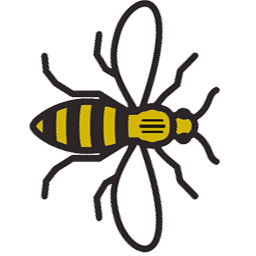Every kitchen is an orchestra. One station is the woodwinds, another is the strings, the next is percussion. Every person in each station plays a role that is vital to the overall production, and their contributions must be balanced against each other as they work towards a larger product.
Senior Production Chefs are the conductors of these orchestras who make sure all sections hit the right notes.
Senior Production Chefs work in settings where food is often produced to a high volume, like hospitals, care homes, schools, high street dining establishments and pubs. They often work to the specifications of centrally-produced menus. One of the challenges that Senior Production Chefs face is not only working towards perfection but maintaining that perfection over time and across a large array of dishes. They will be able to work independently or lead a team to maintain their establishment’s brand and reputation.
Apprentices taking on this apprenticeship programme will be trained to the highest standard in a variety of areas. They will demonstrate a range of culinary, food safety, people and business knowledge, skills and behaviours.
After they complete their training programme, apprentices will undergo the final test – the End-Point Assessment. End-Point Assessment is a balanced and rigorous assessment procedure that guarantees an apprentice is able to meet nationally set standards.
The End-Point Assessment for Senior Production Chefs is split into three parts: an On-Demand Test, a Practical Observation and a Professional Discussion. In order to achieve their certification, apprentices must pass every assessment activity.
On-Demand Test

The On-Demand Test will be in a multiple-choice format, with test questions devised and written by the End-Point Assessment Organisation. (That’s us!) The test will take 90 minutes and contain 45 equally weighted questions. In most cases, the test will take place on-screen and will be computer marked. However, in certain instances, paper tests can be provided.
The apprentice, assessor and employer will schedule a time for this test to take place. It will take place in a secure environment free from distraction and interruption.
This activity is designed to test the knowledge the apprentice gained during their apprenticeship. Knowledge areas covered will include, and are not limited to:
- The importance of monitoring the correct use and maintenance of food production equipment and the procedure for dealing with misuse and malfunctions
- The importance of combining nutrient groups to produce balanced menu items and dishes
- The importance of checking that the food production team is meeting the specific needs of individuals
- How to support and influence the team positively to deliver a high-quality product
Practical Observation

During the Practical Observation, apprentices will demonstrate their skills to the assessor in real time. During the Observation, the assessor will observe the apprentice in their normal place of work for 4 hours and can ask questions to clarify their observations. The Observation will be planned in advance, with the time and place agreed by the apprentice, employer and assessor.
The apprentice will demonstrate key skills and behaviours by supervising the production kitchen while adhering to:
- Brand / organisational quality, standards and specifications, customer’s individual needs, safe and hygienic working practices
- Organisational standards to support, inform and update team members
- Correct use of technology, equipment and resources in daily working practices
During the observation, the apprentice must, among other things:
- Supervise the production of centrally developed menu items and dishes according to organisational specifications
- Monitor the production of food to ensure clients’ needs are met
- Monitor and ensure the effective implementation of food safety management systems
- Strive to achieve the required outcome and support positive, open communications that help team members achieve the best result for customers and the business
Grading will on a Fail, Pass basis. To Pass the observation, the apprentice must, among other things:
- Demonstrate commercial understanding by producing food which supports revenue targets, cost reduction, improved performance and maintains profit margins.
- Supervise the production of quality food items with passion and enthusiasm while maintaining organisational / brand standards, procedures and ensuring clients’ needs are met
- Monitor the efficient, safe use of kitchen tools, equipment and technology ensuring productivity and business objectives are met.
- Act as a role model to the team applying communication skills to demonstrate fairness and empathy within a customer-centric culture.
Professional Discussion

The Professional Discussion will take place after all other assessment activities are completed. This assessment activity will be a structured discussion between the apprentice and the assessor and is designed to cover any areas of the apprenticeship standard that were not covered by the other activities. The assessor will ask a minimum of 10 questions based on the criteria in the apprenticeship standard. The Discussion must be structured so as to draw out the best of the apprentice’s energy, enthusiasm, competence and excellence.
The Discussion can be conducted remotely (e.g. using conferencing technology like Skype) if needed and will always take place in a quiet controlled environment, free from distraction and interruption. The Discussion will last 60 minutes and will be marked by the assessor using a standard template.
During the Discussion, the apprentice must demonstrate, among other things:
- The organisation or brand specifications and how to use them to produce standardised menu items and dishes
- The importance of keeping up-to-date with product range, brand development, promotions and current trends
- How to operate efficiently to deliver profit margins, reduce wastage and support the overall financial performance of the business
- The ability to acquire and share with the team up-to-date information regarding product range, brand development, promotions and current trends
This assessment activity is graded on a Fail, Pass, Distinction basis. To Pass during the Professional Discussion, the apprentice must, among other things:
- Correctly identify the organisation’s vision, values and brand standards and relate them to the food production
- Explain the importance of upholding organisational standards and keeping up with product ranges, promotions and current trends
- Relate the sharing of information regarding product range, brand development, promotions and current trends to the team
- Identify customer profiles and main competitors and explain how these affect food production, market position and the growth strategy of the organisation.
- Be able to explain efficient operating methods to deliver profit margins, reduce wastage and support the financial performance of the business and how to implement them
To achieve a Distinction, in addition to the Pass criteria, the apprentice must be able to:
- Show evidence of proactive leadership, anticipating outcomes and offering solutions to challenges
- Analyse methods used to develop a positive team-working environment, applying actions that support the team, organisation and stakeholders
- Be able to confidently appraise team and business performance to support business objectives
- Be able to generate data to justify profit margins, wastage reduction and cost savings.
- Be able to propose measures to support due diligence of kitchen legislation
Grading

Once all assessment activities are complete, the assessor will compile all the apprentice’s grades and produce a final grade based on the table below:
| Grade Achieved | Overall Grade Awarded | |
| Any activity
|
Fail | Fail |
| On-Demand Test
|
Pass | Pass |
| Practical Observation
|
Pass | |
| Professional Discussion
|
Pass | |
| On-Demand Test
|
Distinction | Pass |
| Practical Observation
|
Pass | |
| Professional Discussion
|
Pass | |
| On-Demand Test
|
Pass | Pass |
| Practical Observation
|
Pass | |
| Professional Discussion
|
Distinction | |
| On-Demand Test
|
Distinction | Distinction |
| Practical Observation
|
Pass | |
| Professional Discussion
|
Distinction |
Once the apprentice has successfully completed their apprenticeship, they will be free to progress onto a higher level position, apprenticeship or further training.
~
We hope this gave you more insight into the Senior Production Chef apprenticeship!
To keep up to date the latest EPA news, return to our blog, or follow us on Twitter, Facebook, Instagram and LinkedIn.
See you around The Hive.













